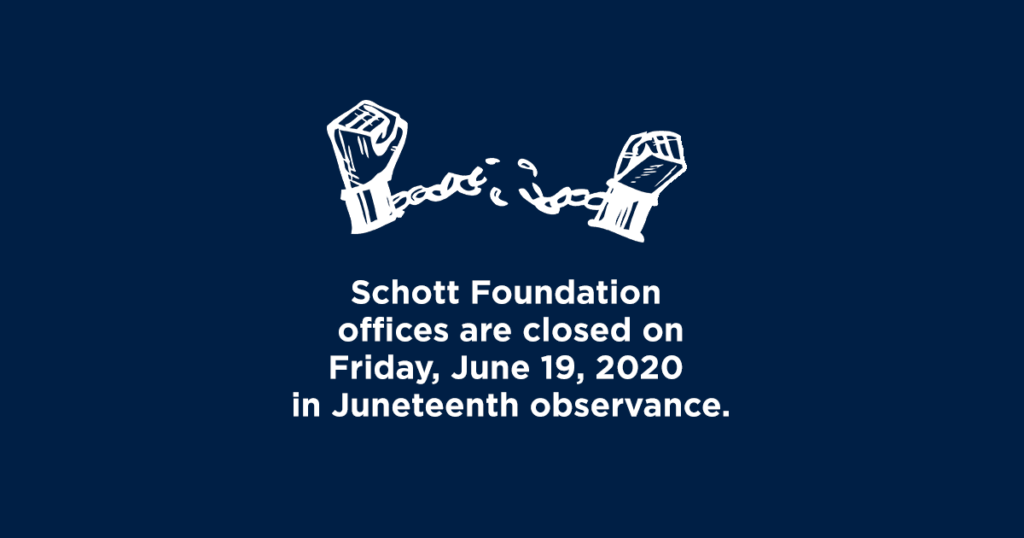Blog
Schott Commemorates Juneteenth

On June 19, 1865, a group of enslaved people in Galveston, Texas were read General Order No. 3, announcing the total emancipation of those held as slaves. Starting in 1866, Juneteenth has been celebrated annually not just for emancipation in Texas, but as a symbol of freedom from slavery across the country.
While General Order No. 3 was announced by Maj. Gen. Gordon Granger, it was not a gift bestowed by him or any other official: it was a recognition of the hard-won reality across the South that the institution of slavery was truly destroyed, largely by the hands of enslaved people themselves. Historian W.E.B. Du Bois describes in Black Reconstruction:
“As soon, however, as it became clear that the Union armies would not or could not return fugitive slaves, and that the masters with all their fume and fury were uncertain of victory, the slave entered upon a general strike against slavery by the same methods that he had used during the period of the fugitive slave. He ran away to the first place of safety and offered his services to the Federal Army. So that in this way it was really true that he served his former master and served the emancipating army; and it was also true that this withdrawal and bestowal of his labor decided the war.”
Immediately after the conclusion of the war and the beginnings of Reconstruction, newly-freed Black communities began constructing the essentials of civic society, first among them public schools to teach Black and white children alike.
As Martin Luther King, Jr. said when he addressed the Massachusetts State Assembly 100 years later in 1965, “I am convinced that if the cruelties of slavery could not stop us, the opposition that we now face will surely fail.”
Schott Foundation offices are closed for Juneteenth, and once we’re back we’ll continue the vital work of supporting grassroots movements for racial justice and public education.


